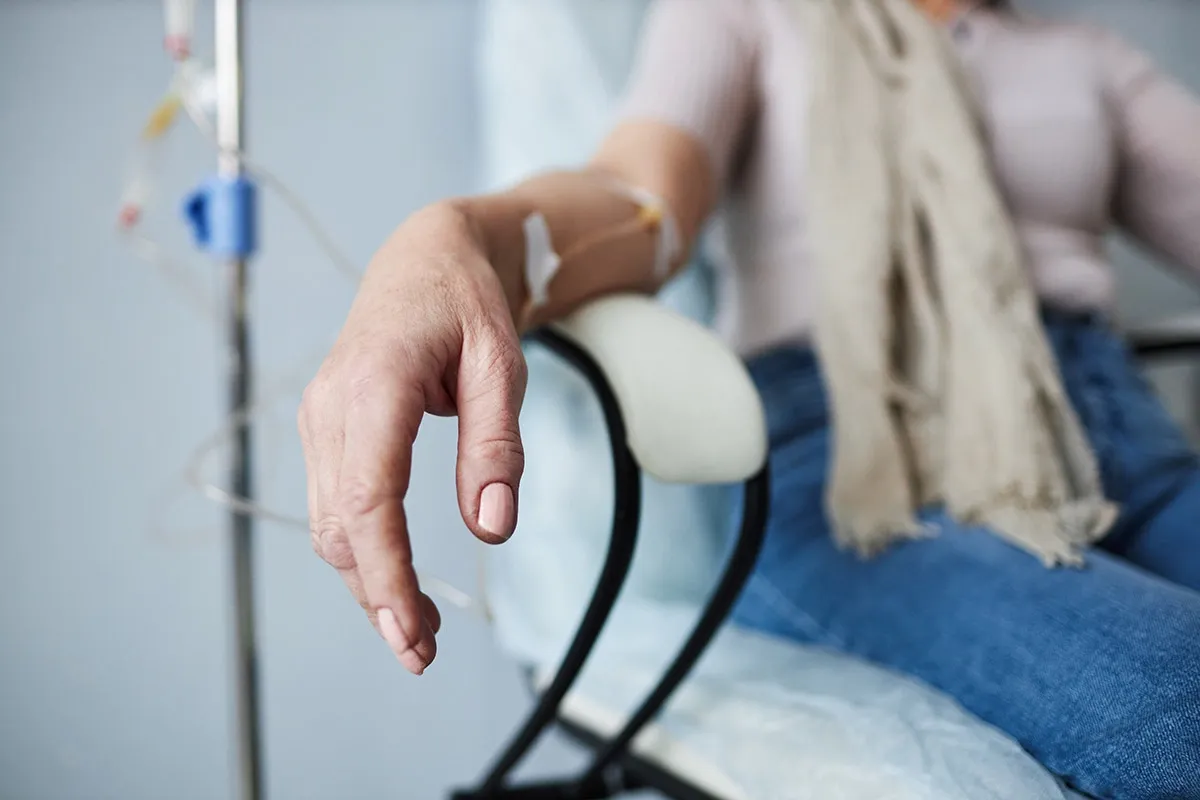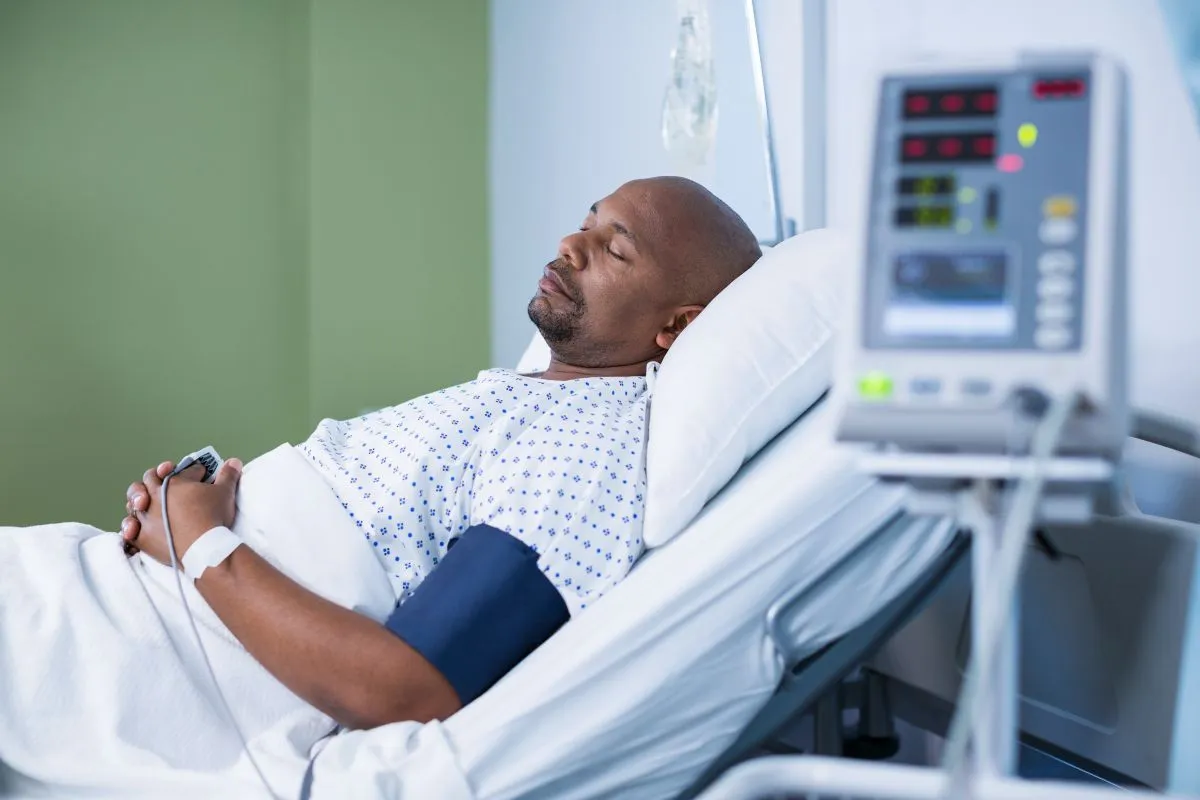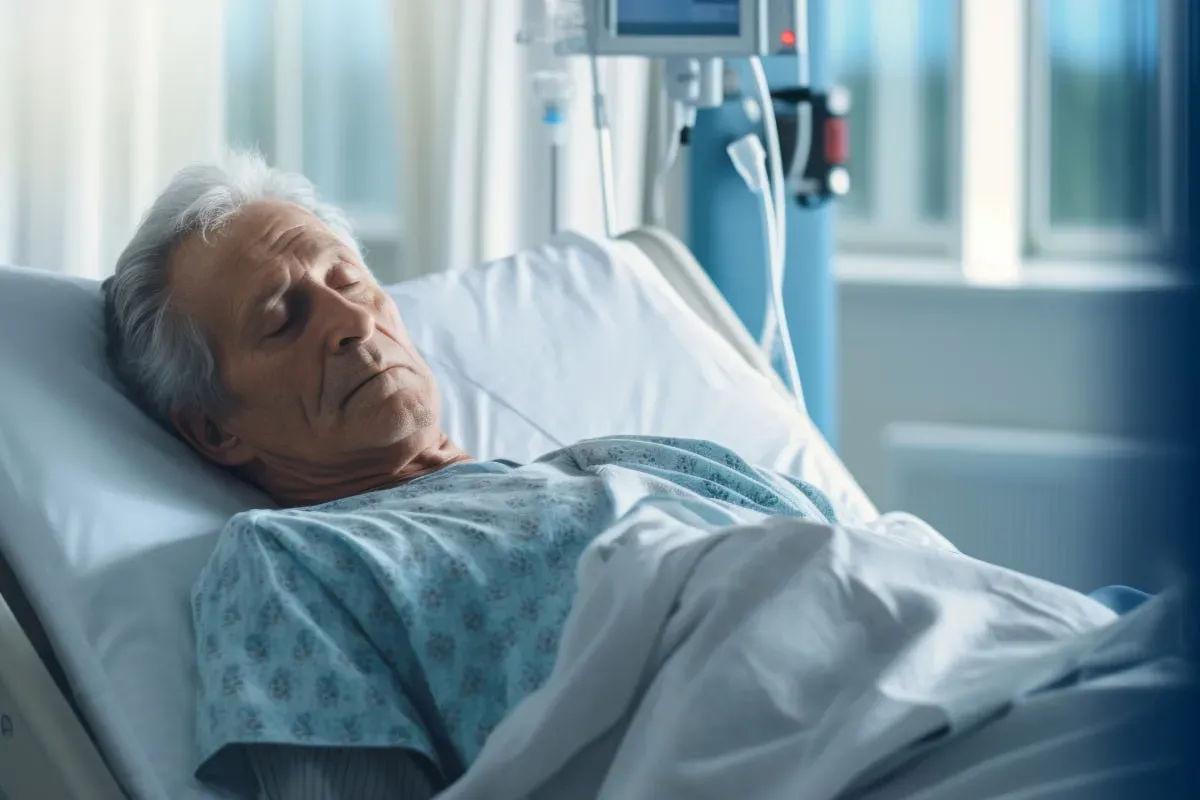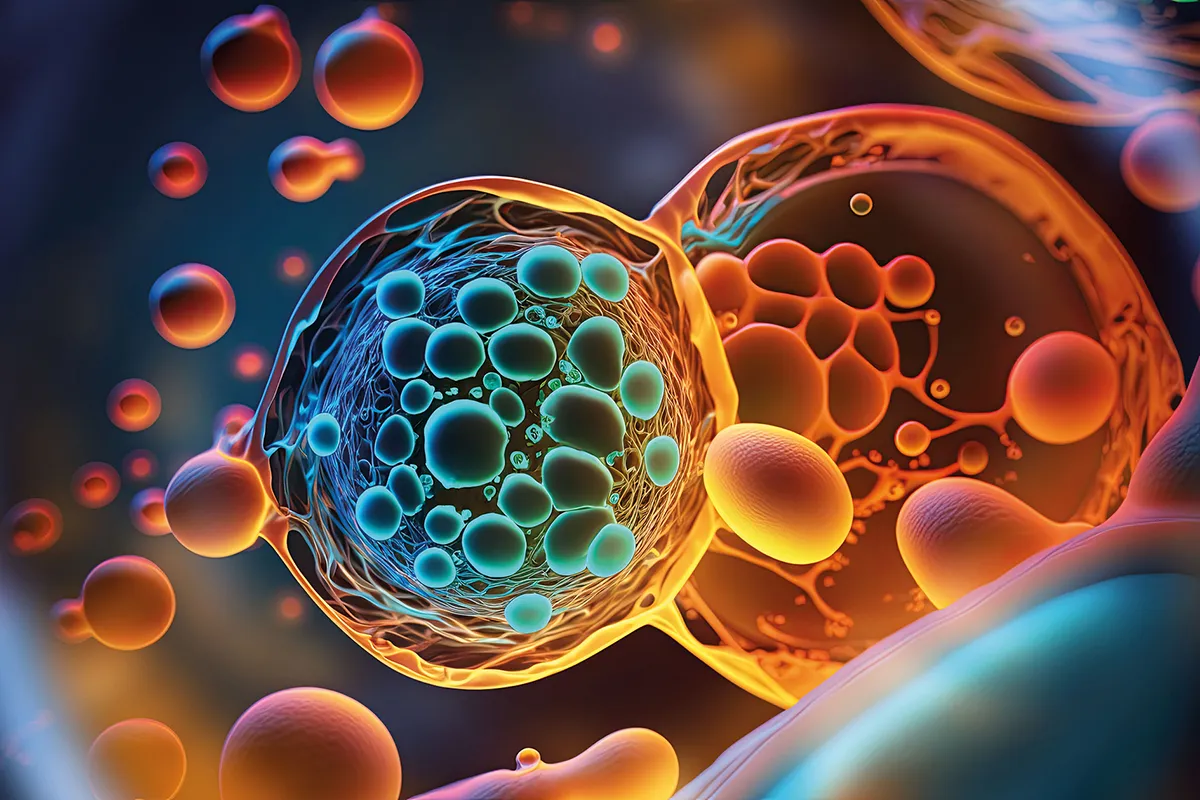What is the Best Way to Avoid Cancer? Nearly 40% of Americans will get cancer at some point. It’s a major cause of death worldwide. But, research shows many cancer cases can be prevented by changing our lifestyle and making smart choices.
It’s important to know how to prevent cancer in many ways. By using all the prevention strategies, we can greatly lower our chance of getting cancer.
Key Takeaways
- Understanding the risk factors associated with cancer
- Adopting a healthy lifestyle to reduce cancer risk
- The importance of early detection and screening
- Nutritional and dietary changes for cancer prevention
- The role of physical activity in reducing cancer risk
Understanding Cancer Development and Risk Factors
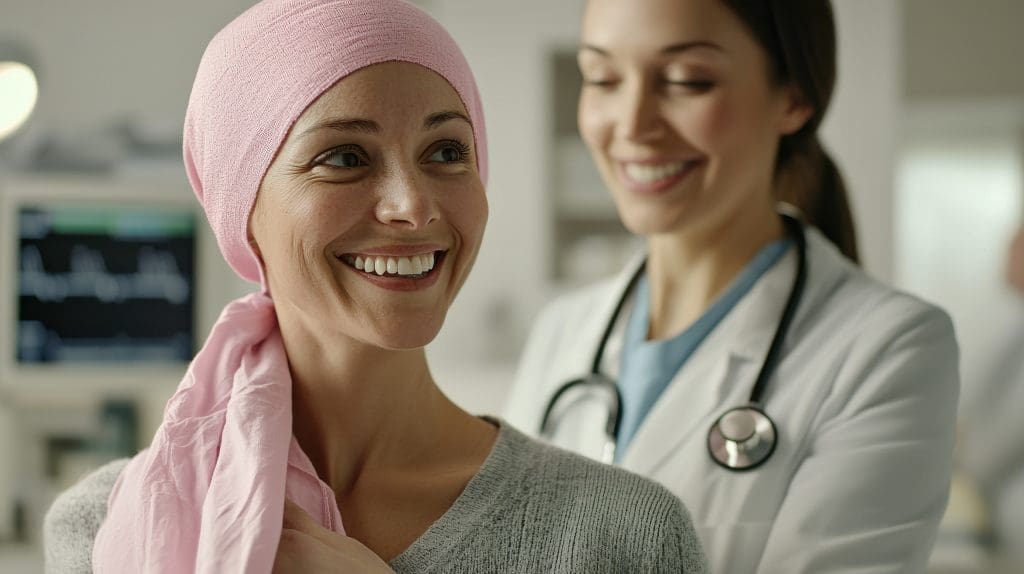
It’s key to know how cancer starts to find ways to stop it. Cancer is a big killer around the world. It happens when cells grow out of control and spread, affecting any part of the body.
The Science Behind Cancer Formation
Cancer forms in a complex way, with genes and the environment playing parts. It starts with a DNA change in a cell, causing it to grow without stop. Genetic mutations can come from family or from things like tobacco smoke, radiation, or chemicals. As these cells grow, they can form tumors and spread to other areas.
Modifiable vs. Non-Modifiable Risk Factors
Risk factors for cancer fall into two groups: things we can change and things we can’t. Non-modifiable risk factors are things like age, family history, and genes. We can’t change these, but knowing them helps us understand our risk.
Modifiable risk factors, on the other hand, are things we can change to lower our cancer risk. These include smoking, what we eat, how active we are, and exposure to harmful chemicals or radiation. By changing these, we can greatly reduce our chance of getting cancer.
How to Prevent Cancer: Evidence-Based Strategies
Learning and using proven ways to prevent cancer can greatly lower your risk. By making lifestyle changes and using medical help, you can make a strong plan to fight cancer.
The Most Effective Prevention Methods According to Research
Studies show that some lifestyle changes and medical steps can really help. For example, eating right, staying active, and not using tobacco are key.
Key prevention methods include:
- Maintaining a healthy weight
- Eating a diet rich in fruits, vegetables, and whole grains
- Engaging in regular physical activity
- Avoiding tobacco products
- Limiting alcohol consumption
Building a Comprehensive Prevention Plan
Creating a good cancer prevention plan means looking at your own risks and using proven methods. It should fit you, considering your family history, lifestyle, and what you’re exposed to.
| Prevention Strategy | Description | Benefit |
| Dietary Changes | Increasing consumption of fruits, vegetables, and whole grains | Reduces risk of various cancers |
| Physical Activity | Engaging in regular exercise | Lowers risk of colon, breast, and other cancers |
| Tobacco Avoidance | Avoiding tobacco products | Significantly reduces lung cancer risk |
By knowing and using these proven strategies, you can greatly lower your chance of getting cancer.
The Power of Nutrition in Cancer Prevention
Nutrition plays a big role in fighting cancer. Eating foods rich in nutrients can help prevent cancer. Eating fruits, vegetables, and whole grains can lower cancer risk.
Cancer-Fighting Foods to Include Daily
Adding certain foods to your diet can help fight cancer. Some top foods include:
- Leafy Greens: Spinach, kale, and collard greens are full of antioxidants. They protect cells from harm.
- Cruciferous Vegetables: Broccoli, cauliflower, and Brussels sprouts have compounds that fight cancer.
- Berries: Blueberries, raspberries, and strawberries are packed with antioxidants. They may lower cancer risk.
Foods and Cooking Methods to Limit or Avoid
It’s also key to avoid foods and cooking methods that raise cancer risk.
| Food/Cooking Method | Cancer Risk | Recommendation |
| Processed Meat | Increased risk of colorectal cancer | Limit consumption |
| Charred Foods | Potential carcinogens formed during charring | Avoid charring; opt for lower-heat cooking |
| Fried Foods | Possible link to increased cancer risk | Limit fried foods; choose baked or grilled options |
By choosing the right foods and cooking methods, we can lower our cancer risk.
Physical Activity as a Cancer Prevention Tool
Studies show that physical activity can lower cancer risk. It helps prevent colon and breast cancer.
Optimal Exercise Types and Duration for Cancer Prevention
The best exercise for cancer prevention varies. But, at least 150 minutes of moderate or 75 minutes of vigorous aerobic activity weekly is good. Adding strength training also boosts benefits.
| Exercise Type | Duration/Frequency | Benefits |
| Aerobic Exercise | At least 150 minutes/week (moderate) | Reduces risk of colon and breast cancer |
| Strength Training | 2-3 times/week | Enhances overall physical function and metabolism |
How Exercise Alters Cancer Risk at the Cellular Level
Exercise changes cancer risk in many ways. It balances hormones, improves insulin use, and boosts the immune system. Regular activity makes the body less likely to develop cancer.
“Physical activity is not only a key component of a healthy lifestyle, but it also plays a critical role in cancer prevention by affecting various physiological processes.”
Knowing how exercise affects cancer risk helps people choose active lifestyles. This is part of a broader plan to prevent cancer.
Maintaining a Healthy Weight to Reduce Cancer Risk
Keeping a healthy weight is key to preventing some cancers. It lowers the risk of cancers like breast, colon, and kidney. Being overweight or obese raises the risk of many cancers.
The Obesity-Cancer Connection
Studies show a strong link between obesity and cancer risk. Obesity can cause chronic inflammation, leading to cancer. This happens through changes in hormones, insulin resistance, and other metabolic issues.
Sustainable Approaches to Weight Management
Getting and staying at a healthy weight needs a few things. Eating a balanced diet with fruits, veggies, and whole grains is key. Also, regular exercise helps manage weight and fights cancer.
| Weight Management Strategy | Description | Benefits for Cancer Prevention |
| Dietary Changes | Eating a balanced diet rich in fruits, vegetables, and whole grains | Reduces the risk of certain cancers |
| Increased Physical Activity | Engaging in regular exercise such as walking, cycling, or swimming | Helps maintain a healthy weight and reduces cancer risk |
| Lifestyle Modifications | Making changes such as reducing sedentary activities | Contributes to overall weight management and cancer prevention |
Tobacco and Alcohol: Major Preventable Causes of Cancer
It’s important to know how tobacco and alcohol can cause cancer. Tobacco is a big reason for cancer deaths worldwide. Quitting tobacco is key to lowering cancer risk. Avoiding tobacco and alcohol is vital for preventing cancer.
Carcinogenic Effects of Tobacco Products
Tobacco smoke has over 70 known cancer-causing substances. It can harm DNA and lead to cancer. Tobacco use increases the risk of lung, throat, and mouth cancers. Quitting tobacco is essential for cancer prevention.
There are many ways to quit tobacco. Nicotine replacement therapy, prescription drugs, and counseling can help. Setting a quit date and getting support from loved ones or groups can also help. Using a mix of these methods can lead to success.
Strategies for Quitting Tobacco Successfully
Quitting tobacco is tough, but there are ways to make it easier. Nicotine replacement therapy, prescription drugs, and counseling can help. Having a quit date, knowing your triggers, and getting support can also help a lot. Combining these strategies can lead to quitting successfully.
Alcohol Consumption Guidelines for Cancer Prevention
Drinking alcohol is also a risk for cancer, like liver, breast, and colon cancers. Drinking less is part of a good cancer prevention plan. Men should drink no more than two drinks a day, and women one. Following these guidelines can lower the risk of alcohol-related cancers.
By cutting down on tobacco and alcohol, you can lower your cancer risk. Making these changes takes commitment and support. But, the health benefits are huge.
Environmental Carcinogens: Identification and Avoidance
It’s important to know about environmental carcinogens to prevent cancer. These are harmful substances around us, found in homes and workplaces. Knowing where they are is the first step to avoid them.
Household and Workplace Carcinogens
Radon, asbestos, and chemicals in products are common household carcinogens. Radon is a radioactive gas that can cause lung cancer. Asbestos, used in insulation, can lead to lung cancer and mesothelioma if inhaled.
In workplaces, chemicals like benzene and pesticides are dangers. Workers in construction, manufacturing, and mining are at higher risk.
Practical Steps to Reduce Daily Exposure
To lower exposure to carcinogens, we need to be aware and take action. Testing homes for radon and fixing it if needed can help. For asbestos, don’t disturb it and get professionals for removal.
In workplaces, follow safety rules, wear protective gear, and follow regulations. Also, pick products without known carcinogens and handle chemicals safely.
A study shows that substances in alcohol, like soju, increase cancer risk. This highlights the need for broad. By knowing and avoiding environmental carcinogens, we can lower our cancer risk.
Sun Safety and Skin Cancer Prevention
Skin cancer is becoming more common, making sun safety very important. It’s one of the most common cancers globally. Using good sun protection can help lower its numbers.
Understanding UV Radiation Risks
UV radiation from the sun or tanning beds is a big risk for skin cancer. UVA and UVB rays can harm your DNA, leading to mutations. Knowing this risk is the first step to protect your skin.
Comprehensive Sun Protection Methods
Good sun protection means using several strategies. This includes applying broad-spectrum sunscreen with high SPF, wearing protective clothing, and staying in the shade during peak sun hours. These steps can greatly lower your skin cancer risk.
Regular Skin Self-Examination Guidelines
Doing regular skin checks is key for catching skin cancer early. Check your skin every month for new or changing moles. Use the ABCDE rule (Asymmetry, Border, Color, Diameter, Evolving) to spot possible cancerous spots.
Preventive Medical Care and Cancer Screening
Preventive medical care is key to fighting cancer. Regular visits to the keep you healthy and help catch cancer early. This care includes cancer screening, which finds cancer when it’s easiest to treat.
Age and Risk-Based Screening Recommendations
Screening for cancer depends on your age and risk. For example, women should start getting mammograms at 40 or 45 if they’re at average risk. Men and women should get colon cancer screening at 45.
Talking to your about your risk can make screenings more effective for you.
| Cancer Type | Screening Method | Recommended Starting Age |
| Breast Cancer | Mammography | 40-45 |
| Colon Cancer | Colonoscopy | 45 |
| Cervical Cancer | Pap Smear | 21 |
Recognizing Early Warning Signs of Common Cancers
Screening tests find cancer before symptoms show. But knowing early signs can lead to quicker diagnosis. Look out for unexplained weight loss, persistent pain, skin changes, and unusual bleeding.
For example, a long cough or hoarseness might mean lung or throat cancer. Changes in bowel or bladder habits could point to colorectal or bladder cancer. Reporting these signs to your can help catch cancer early and treat it better.
Key Early Warning Signs:
- Unexplained weight loss
- Persistent pain or fatigue
- Changes in skin or moles
- Unusual bleeding or discharge
- Changes in bowel or bladder habits
Vaccines That Help Prevent Cancer
Vaccines can greatly lower the risk of getting certain cancers. They work by stopping viruses that cause cancer. This makes them a strong ally in the battle against cancer.
HPV Vaccination and Related Cancers
The Human Papillomavirus (HPV) vaccine is key in preventing cancer. HPV is linked to cancers like cervical, anal, and throat cancers. The Centers for Disease Control and Prevention (CDC) suggest HPV shots for pre-teens. They also recommend shots for those who missed the vaccine at the right age.
HPV vaccination has been proven to significantly reduce the risk of HPV-related cancers. It stops HPV infection, which means less chance of getting these cancers later.
Hepatitis Vaccines and Liver Cancer Prevention
Hepatitis B vaccination is also vital for cancer prevention. Chronic hepatitis B infection can lead to liver cancer. The vaccine is given to all newborns and to adults at high risk.
The hepatitis B vaccine is effective in stopping liver cancer. It lowers the number of hepatitis B infections, which in turn reduces liver cancer cases.
| Vaccine | Related Cancer(s) | Target Population |
| HPV Vaccine | Cervical, anal, oropharyngeal, penile, vulvar, vaginal | Pre-teens, with catch-up for missed vaccinations |
| Hepatitis B Vaccine | Liver Cancer | All infants at birth, adults at increased risk |
Genetic Factors and Personalized Prevention Strategies
Knowing your genetic risk factors can help prevent cancer early. A family history of cancer raises your risk. Understanding this history is key to personalized prevention.
Understanding Your Family Cancer History
Understanding your family’s cancer history is important. It helps spot genetic risks. Family history can increase your risk. This makes knowing your history vital for prevention.
To grasp your family’s cancer history, follow these steps:
- Gather info on your relatives’ cancer diagnoses.
- Record the age of diagnosis for each relative.
- Discuss this with your healthcare provider to assess your risk.
When to Consider Genetic Testing and Counseling
Genetic testing can find mutations that raise cancer risk, like BRCA1 and BRCA2 for breast and ovarian cancer. If your family history shows a strong cancer risk, genetic testing and counseling might be advised.
Genetic counseling helps you understand your test results. It also helps you assess your cancer risk. Genetic testing can pinpoint those at higher risk. This allows for targeted prevention and early detection.
Think about genetic testing if you have:
- A family history of the same or related cancers.
- Relatives diagnosed with cancer at a young age.
- A known genetic mutation in your family.
Stress Management and Immune System Support
Stress management is key to keeping the immune system strong. Chronic stress can weaken the immune system. This makes the body more likely to get sick, including cancer. It’s important to understand this link to prevent cancer.
The Connection Between Chronic Stress and Cancer Risk
Studies show that chronic stress can harm the immune system. It can raise the risk of diseases like cancer. This shows why managing stress is vital in preventing cancer.
Evidence-Based Stress Reduction Techniques
There are ways to reduce stress and boost the immune system. Mindfulness meditation, yoga, and deep breathing can help. They lower stress and improve health.
Regular exercise is also great for reducing stress. It helps keep the immune system strong. By using these techniques, people can support their immune system and lower cancer risk.
11 Ways to Reduce Cancer Risk: Practical Daily Habits
We can lower our cancer risk by making simple changes in our daily lives. By adjusting our morning, work, and evening routines, we can fight cancer more effectively.
Morning Routine Adjustments for Cancer Prevention
Starting the day with a healthy breakfast is key. Choose foods rich in fruits, veggies, and whole grains. Adding a short walk or yoga can also help. Green tea, full of antioxidants, is another great choice.
Key morning habits include:
- Eating a balanced breakfast
- Engaging in morning physical activity
- Drinking green tea
Workplace and Home Environment Modifications
Keeping our work and home spaces safe from harmful chemicals is important. Use non-toxic cleaners and avoid plastics with BPA. Good air flow is also essential. At work, moving around often can help prevent some cancers.
Practical modifications include:
- Using eco-friendly cleaning supplies
- Avoiding BPA-containing plastics
- Taking regular movement breaks at work
Evening Habits That Support Cancer Prevention
Our evening routines can also help prevent cancer. Cooking a healthy meal, drinking less alcohol, and sleeping well are all good. Stress-reducing activities before bed can also improve sleep.
Beneficial evening habits:
- Cooking a healthy dinner
- Limiting alcohol intake
- Maintaining a regular sleep schedule
- Engaging in stress-reducing activities before bed
By adding these habits to our daily lives, we can fight cancer more effectively. Every small change helps, and together, they can greatly improve our health.
Conclusion: Building Your Lifelong Cancer Prevention Plan
Creating a detailed cancer prevention plan is key to lowering cancer risk. By using the strategies from this article, people can greatly reduce their cancer risk. It’s important to focus on nutrition, exercise, and keeping a healthy weight for life.
Staying away from tobacco and drinking less alcohol are also important. Managing stress and avoiding harmful environmental factors can also help. These steps help build a strong plan to keep you healthy.
Starting a cancer prevention plan takes a long-term view and a commitment to lasting lifestyle changes. This way, you can control your health and lower cancer risk. A good plan is a strong defense against cancer, and it’s always a good time to start.
FAQ
What are the best ways to prevent cancer?
To prevent cancer, keep a healthy weight and exercise often. Eat lots of fruits and veggies. Avoid tobacco and limit alcohol. Also, protect your skin from the sun.
How can I reduce my risk of getting cancer?
Lower your cancer risk by living healthy. Eat well, stay active, and avoid harmful substances. Regular check-ups and screenings are key.
What foods help prevent cancer?
Foods like fruits, veggies, whole grains, and lean proteins fight cancer. Berries, leafy greens, broccoli, and omega-3 foods are great choices.
How does physical activity impact cancer risk?
Exercise lowers cancer risk by boosting your immune system and reducing inflammation. Aim for a mix of cardio, strength training, and high-intensity workouts.
What is the connection between obesity and cancer?
Being overweight increases cancer risk, including breast, colon, kidney, and pancreatic cancer. Eating right and exercising can help manage weight and risk.
How can I quit tobacco successfully?
Quitting tobacco needs a plan. Use counseling, nicotine replacement, and meds. Having a quit date and support can help you succeed.
What are the guidelines for alcohol consumption in cancer prevention?
To lower cancer risk, drink in moderation. Men should have no more than two drinks a day. Women should limit to one drink a day.
How can I identify and avoid environmental carcinogens?
Look out for harmful substances at home and work. Avoid chemicals and radon. Use protective gear and follow safety rules.
What are the best methods for sun protection?
Protect your skin with sunscreen, clothes, and shade. Stay out of the sun during peak hours. Check your skin for cancer signs regularly.
What vaccines can help prevent cancer?
Vaccines like the HPV and hepatitis B vaccines can prevent certain cancers. They protect against cervical and liver cancer.
How does stress management impact cancer risk?
Stress can weaken your immune system and increase cancer risk. Try stress-reducing activities like meditation and yoga to help.
What daily habits can help reduce cancer risk?
Start your day with green tea and make your environment safer. Adjust your evening routine for better sleep. These habits can lower cancer risk.
How can understanding my family cancer history help in cancer prevention?
Knowing your family’s cancer history can reveal genetic risks. This info helps tailor prevention plans, including genetic tests and counseling.
What is the role of preventive medical care in cancer prevention?
Regular health checks and screenings are vital for cancer prevention. Follow age and risk-based guidelines for screenings.


